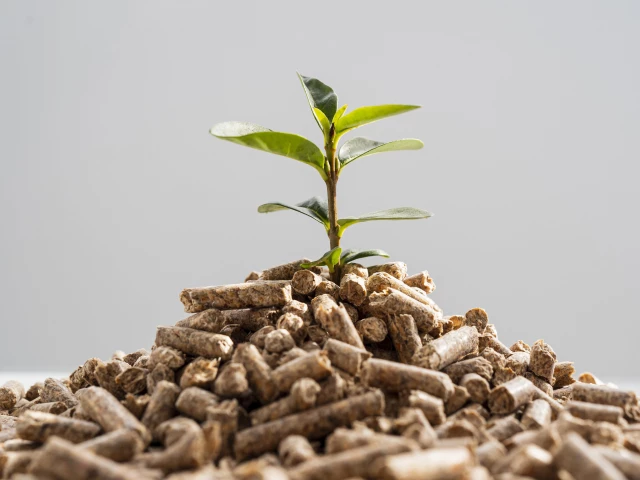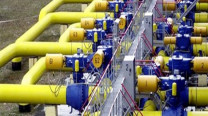Biofuels: black gold from golden straw
Emerging innovative biofuels hold potential for significantly advancing renewable energy solutions

Pakistan's economy is strongly anchored in agriculture, which accounts for nearly a quarter of its gross domestic product (GDP) and employs almost half of the country's workforce.
However, the sector also generates significant waste, raising environmental and sustainability concerns. The innovative strategy of harnessing this agricultural waste for biofuel production not only mitigates waste management concerns but also transforms two major challenges — environmental sustainability and costly energy dependence — into a single, impactful solution.
Biofuel is any fuel derived from organic sources, such as plant biomass, agricultural residues, or animal by-products. The production of biofuels generally relies on three distinct technological approaches: chemical, biological, and physical processes.
Biogas and bioethanol stand out as two of the most widely recognised biofuels, both produced through biological fermentation methods. However, a range of innovative biofuels is also emerging, including dimethyl ether (DME), sustainable aviation fuel (SAF), diesel, and butanol, which hold significant potential for advancing renewable energy solutions.
The evolution of biofuel technology is also notable, as it transitions from first generation, which primarily relied on food crops as feedstock, to second generation that utilises lignocellulosic feedstock, such as crop residues and other agricultural waste.
Even more advanced are third-generation biofuels, which leverage algae as a high-yield feedstock, marking a significant step forward in sustainable energy production.
Countries worldwide have recognised the immense potential of biofuels in enhancing energy security, mitigating climate change, and stimulating economic growth. Leading the way in integrating biofuels into their energy portfolios are Brazil and the United States.
For Pakistan, biofuel production offers a similar opportunity, serving as both a strategic step towards achieving energy independence and a crucial measure to address the environmental challenges associated with crop residue burning.
Pakistan has decades of experience in producing bioethanol and biogas, making them ideal starting points for expanding the country's biofuel capabilities. Initial efforts could focus on enhancing ethanol production by transitioning from first generation to second generation, and eventually to third generation.
Simultaneously, we could explore the development of valuable biofuels such as SAF, diesel, and gasoline through innovative pathways like the alcohol-to-jet (ATJ) and alcohol-to-gasoline (ATG) technologies.
DME is emerging as a highly promising and versatile fuel known for its clean-burning properties. It is widely utilised as a substitute for liquefied petroleum gas (LPG) in domestic, industrial, and transportation applications.
DME can either be blended with LPG or used as a complete replacement, making it a flexible and adaptable option. China has been a global leader in adopting DME, while Indonesia has also made significant strides by gradually replacing LPG with DME, benefiting from its compatibility with the existing LPG infrastructure.
In Europe and North America, several initiatives are underway to produce and promote DME as a cleaner, more sustainable alternative for transportation fuels.
Recent advancements in technology have enabled the production of second-generation DME through a fermentative process in Australia. This breakthrough paves the way for large-scale production of this biofuel, positioning it as a sustainable option with potential on a par with second-generation bioethanol.
To fully harness the potential benefits of biofuels, Pakistan must focus on developing a comprehensive, multistep framework tailored to the country's unique challenges and opportunities. This approach begins with creating the initial roadmap, which lays the foundation for formulating a detailed policy plan.
The policy plan would then lead to the development of an actionable implementation strategy. The subsequent phase would involve establishing robust standards and regulations to ensure consistency, quality, and adherence to international practices.
Finally, the process culminates in the effective execution of these measures. This systematic and well-structured framework would position Pakistan to maximise the economic, environmental, and energy security benefits of biofuels.
The development of this framework would be guided by world-renowned experts and scientists specialising in both current and emerging biofuel technologies. By incorporating their insights, the strategy can emphasise a multipronged approach that addresses three essential priorities: support to attract foreign investment, fostering local industrial capacity, and a strong commitment to indigenous research and development (R&D).
To maximise the effectiveness of these three components, the government-led supporting initiatives need to be integrated into the framework right from the initial roadmap stage.
On the commercial front, these initiatives might include tax incentives, subsidies for biofuel production facilities, public-private partnerships, and the introduction of blending mandates across all fuel types. For instance, the government could enforce mandates requiring 10-20% biofuel blends in diesel, petrol, aviation fuel, and LPG, with a long-term vision of scaling these blends up to 50% and eventually transitioning to 100% renewable fuels.
Building robust indigenous R&D capabilities is essential for innovating cost-effective production methods tailored to the local feedstock. To achieve this, Pakistan could leverage its overseas diaspora of accomplished scientists by establishing connections with domestic universities and institutions to facilitate knowledge exchange and expertise development.
A key starting point would be the creation of one or more centres of excellence in biofuels. These centres could focus on identifying under-researched areas, where global competition remains limited, to accelerate the development of local expertise and intellectual property, positioning Pakistan ahead of international competitors.
The strategic integration of policy reform and advanced research initiatives is crucial for guiding Pakistan towards a sustainable and prosperous energy future. With a pragmatic, multipronged approach, the country has the potential not only to meet its domestic energy demand but also to emerge as a leading regional supplier of renewable fuels, thereby redefining its energy narrative for the decades to come.
The writer is a leading innovator in CO2-based renewable materials and fuels, known for Lignik and the Orycycle model





















COMMENTS
Comments are moderated and generally will be posted if they are on-topic and not abusive.
For more information, please see our Comments FAQ